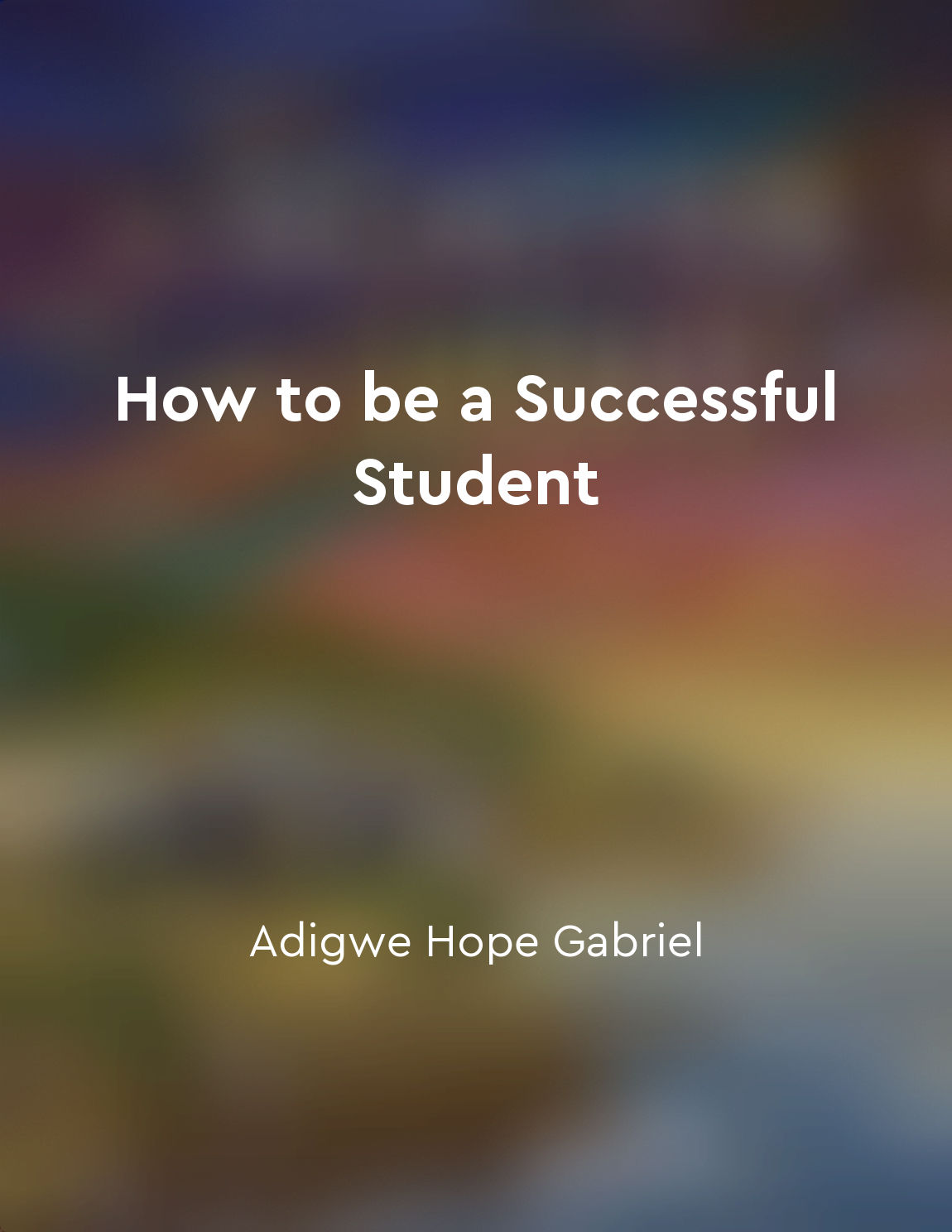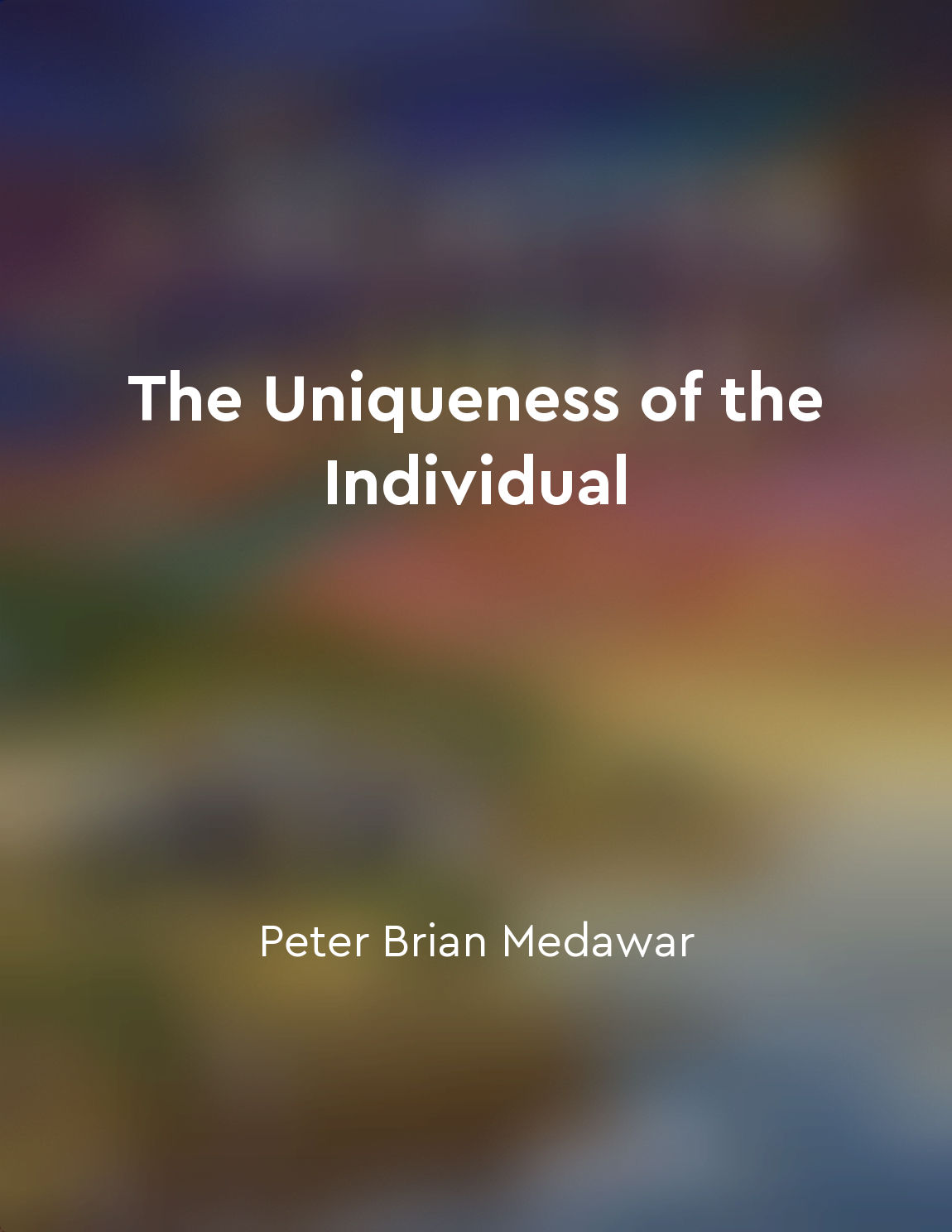Educational experiences shape personality from "summary" of Personality Development In Adolescence by Eva Skoe,Anna von der Lippe
Educational experiences play a critical role in shaping an individual's personality. These experiences encompass a wide range of activities that adolescents engage in within educational settings, such as interactions with teachers and peers, participation in extracurricular activities, and exposure to academic challenges. Through these experiences, adolescents acquire knowledge, skills, and attitudes that contribute to the development of their personality. Interactions with teachers and peers provide adolescents with opportunities to learn how to communicate effectively, collaborate with others, and develop social skills. Positive relationships with teachers can foster a sense of belonging and motivation, while interactions with peers can help adolescents develop empathy, perspective-taking, and conflict resolution skills. These social interactions are essential for the development of social competence and emotional regulation, which are integral components of personality development. Participation in extracurricular activities allows adolescents to explore their interests, talents, and values outside of the academic curriculum. These activities provide opportunities for adolescents to develop leadership skills, teamwork, and a sense of responsibility. Involvement in extracurricular activities can also help adolescents build self-confidence, resilience, and a sense of purpose, all of which are important for the development of a healthy and well-rounded personality. Exposure to academic challenges, such as difficult assignments, tests, and projects, can help adolescents develop perseverance, problem-solving skills, and a growth mindset. Overcoming academic challenges can foster a sense of accomplishment, self-efficacy, and a willingness to take risks. These experiences can shape adolescents' beliefs about their abilities and potential, influencing their self-concept and self-esteem, which are important aspects of personality development.- Educational experiences have a profound impact on adolescents' personality development. By providing opportunities for social interactions, participation in extracurricular activities, and exposure to academic challenges, educational settings play a crucial role in shaping adolescents' knowledge, skills, attitudes, and values. These experiences contribute to the development of social competence, emotional regulation, self-confidence, resilience, and a growth mindset, all of which are essential for the cultivation of a healthy and adaptive personality.
Similar Posts
The magic of comic books and superheroes
As a child growing up in the 1950s, I was completely captivated by the fantastical world of comic books and superheroes. These ...
Set clear and specific goals
Setting clear and specific goals is crucial for achieving success in any area of your life. When you have a clear goal in mind,...
Emphasize the importance of resilience
Resilience is a vital skill that all successful individuals possess. It is the ability to bounce back from setbacks, challenges...
Boys are sensitive and vulnerable but may hide their emotions
Boys are sensitive and vulnerable, but they often hide their emotions behind a mask of toughness. Society has long dictated tha...

Prioritizing tasks can lead to better results
Prioritizing tasks is a crucial skill that every successful student must possess. When you prioritize tasks, you are able to fo...

Don't be afraid to seek clarification on confusing topics
When faced with a confusing topic, it's natural to feel overwhelmed and unsure of where to turn for help. However, it's crucial...
Covers all important topics and concepts
The content of this book is designed to ensure that students are well-prepared for their CBSE Class 10th exams. It covers all t...
Incorporate realworld connections into lessons
When teachers incorporate real-world connections into their lessons, they are providing students with meaningful experiences th...
Children learn best when they are interested
Children, like all human beings, learn best when they are interested in what they are learning. When something really interests...

Diversity is essential for evolution
In the grand scheme of life, diversity is not just a desirable feature - it is an absolute necessity. Without it, evolution wou...

